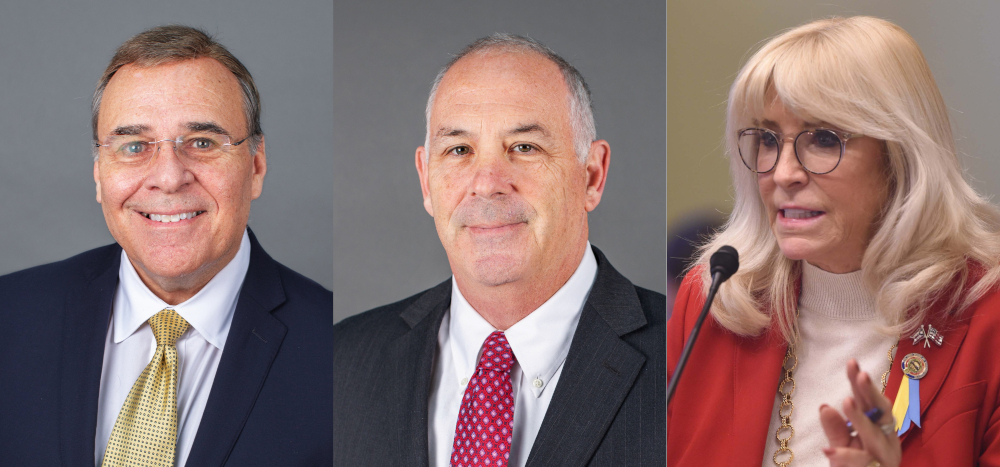Ohio is the most recent state to move against intoxicating substances made from industrial hemp, with proposed laws having been introduced in both houses of the legislature. Developments in three other states are also heating up.
State Rep. Sara Carruthers, a Republican, earlier this month introduced Ohio House Bill 642 (HB642), which would kick off rulemaking. That measure would require the Department of Agriculture to consult with the state’s Department of Safety and issue recommendations for the synthetically produced hemp products.
The House Bill makes a number of suggestions that could frame a report by the two state agencies, starting with a clear definition for hemp “that captures all possible forms of hemp and hemp products that can be used for intoxicating purposes,” and maximum THC levels for those products. Other issues to be addressed include locations of establishments where the products might be sold, age restrictions, penalties for sales to underage consumers, testing standards, advertising and labeling guidelines, and enforcement.
If the recommendations urged in HB642 are adopted, they would be in effect for one year, according to the draft law.
Second Ohio measure
HB 642 follows Ohio Senate Bill 278 (SB278), filed in late May by Republican Sens. Kirk Schuring and Steve Huffman. It would ban sales of adult-use hemp products to consumers under 21, require customers to present IDs, and force retailers to keep the products behind the counter. SB278 is a comprehensive piece of legislation that aims to modify the regulation and taxation of medical and recreational marijuana as well as hemp.
Ohio Gov. Mike DeWine earlier this year called on legislators to move quickly to ban sales of products containing the intoxicating hemp compounds, lamenting their wide availability in common retail outlets. DeWine said there had been at least 257 reports to the state’s Poison Control Center in the last three years from products containing delta-8 THC, the most popular of the hemp-derived substances. The governor said neither his office nor the police have laws under which they can crack down on the illicit products.
Both Ohio bills are now under consideration by committees in the respective legislative bodies, an early phase of the lawmaking process.
Action in other states
Other states have also recently seen initiatives emerge or advance to get the “high”-producing hemp-derived compounds out of the marketplace:
New Jersey: Senate Bill 3235 (S3235), which would cap the total of all forms of THC in consumable hemp products at 0.3%, awaits the signature of Gov. Phil Murphy. The law would also restrict the sale of intoxicating hemp products to those 21-and-over. Intoxicating hemp drinks sold by licensed liquor vendors would be overseen by the state’s Cannabis Regulatory Commission (CRC), and hemp stores that sell intoxicating hemp products would require marijuana licenses. Liquor stores would not be required to hold marijuana licenses but would still have to go through the CRC. While those rules are being developed, retailers would be forced to remove the products from their stores.
Wyoming: A group of hemp operators have joined to sue the state over a ban on intoxicating hemp substances that took effect this month under Wyoming Senate File 0032 (SF0032). The lawsuit was filed at the end of June in the U.S. District Court against Wyoming Gov. Mark Gordon, Attorney General Bridget Hill, Director of Agriculture Doug Miyamoto and all of Wyoming’s elected prosecutors. SF0032 aims to regulate the hemp industry by prohibiting the addition of synthetic substances or other additives to hemp and hemp products. It also classifies hemp-derived intoxicating compounds as Schedule I controlled substances. UPDATE July 26: A federal judge this week rejected the challenge to the state’s new restrictions on products containing intoxicating hemp substances. Wyoming’s attorney general has filed a motion to dismiss, as the case is still pending in court.
Texas: While the state legislature is now out of session, the Senate State Affairs Committee held an interim hearing last week during which Sen. Charles Perry called for a review of the hemp intoxicants when the Legislature convenes next year. Perry, who authored the state’s hemp bill in 2019, has criticized hemp operators for taking advantage of a loophole to produce and sell the intoxicating hemp products. Texas has more than 7,700 operators licensed to sell hemp products at retail, according to the Department of State Health Services (DSHS). Hemp stakeholders have been successful in pushing back against restrictions on the products. In 2021 a bill that would have outlawed the products died in the legislature, and last year operators won a court case that set aside a ban on the products by the DSHS, which had designated the THC compounds inside them as Schedule 1 controlled substances.
Marketed to kids
In addition to delta-8 THC, the intoxicating products derived from hemp include delta-10 THC, THC-O-acetate, HHC, THCP and others. The products, which have spread all over the U.S., are often marketed to youth in packaging that mimics well-known brands of snacks and candy. Many producers and sellers have received warnings from the U.S. Food & Drug Administration (FDA) regarding the safety of their products. FDA said it has received reports of serious adverse events from consumers who suffered “hallucinations, vomiting, tremors, anxiety, dizziness, confusion, and loss of consciousness.” At least one child’s death in Virginia was attributed to delta-8 consumption.
The U.S. Drug Enforcement Administration considers the intoxicating hemp products to be federally illegal. Some states continue to allow the products under a strict interpretation of federal law which legalized industrial hemp and its downstream derivatives. But other court rulings over the past two years have held that legalization of hemp in the 2018 Farm Bill never intended to allow intoxicating psychoactive products, most of which are manufactured by manipulating hemp-derived CBD in the lab.

